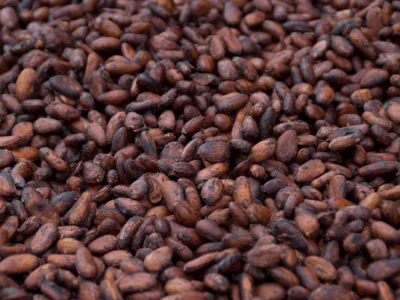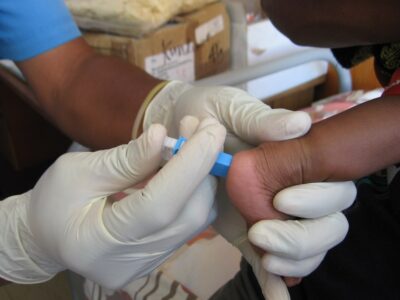Ghana, with a population in excess of 34 million, is one of Africa’s most dynamic economies. The growing demand for healthcare is a critical aspect of the nation’s progress, with both public and private institutions striving to meet this evolving need. In the 2025 budget, the government allocated US$17.82 billion towards health expenditure, representing 6.32% of the national budget and an increase of 13.4% in nominal terms on the 2024 allocation.
The country boasts a robust network of healthcare facilities. As of 2024, approximately 200 hospitals were operational across Ghana. Furthermore, the pharmaceutical subsector has witnessed substantial growth, with over 2,400 pharmacies and 38 pharmaceutical manufacturing companies onboarded onto the National E-Pharmacy platform as of April 2024. There are also over 500 diagnostic centres and, as of June 2025, 42 ambulances serving the Greater Accra Region, highlighting an ongoing need for fleet expansion to improve the ambulance-to-population ratio nationwide.
HEALTH INSURANCE
Ghana’s health insurance market is diverse, featuring approximately 12 licensed private health insurance schemes, including seven private commercial health schemes. This framework aims to enhance accessibility and affordability of healthcare services. Ghana pioneered the adoption of a universal health insurance system, the National Health Insurance Scheme (NHIS) in 2001, becoming one of the initial African nations to do so. This initiative aimed to enhance healthcare accessibility for all citizens.
This year’s budget also includes a GH¢10.7 billion budgetary allocation for the NHIS in the 2025 Appropriation Bill. This represents a substantial increase of nearly GH¢4 billion over the GH¢6.87 billion designated for the National Health Insurance Fund (NHIF) in 2024, a direct result of the government’s decision to uncap the NHIF, allowing for greater financial flexibility. This increased funding is earmarked for claims reimbursement, procurement of essential medicines, and financial assistance to underprivileged patients. The Minister of Health has also indicated that the uncapped fund will support free primary healthcare and bridge funding gaps resulting from the withdrawal of donor support.
MEDICAL DEVICES AND SUPPLIES
The medical devices and supplies sector remains a vital component of healthcare provision. The market size was valued at US$71.2 million as of 2021, and Fitch Solutions forecasts double-digit growth in the medical devices market over 2024 and beyond, with all product categories expected to post high- to double-digit growth. Consumables continue to command the largest share, while ongoing health infrastructure projects and the rollout of the NHIS are expected to continue supporting increased spending on medical devices. The healthcare system continues to operate on a mixed financing model, with government efforts focused on increasing domestic resource mobilisation and exploring innovative health financing models. The government is redirecting resources, deepening partnerships with the private sector, and introducing structural fiscal reforms to fund health services, as donor funding continues to decline.
Healthcare provision in Ghana is organised into primary, secondary, and tertiary care. Primary healthcare involves health posts, clinics, and health centres, delivering essential services such as immunisation, malaria treatment, antenatal care, and infant and young child feeding. Secondary healthcare addresses more specialised medical needs, staffed by specialists in fields like cardiology, endocrinology, neurology, ENT, and general surgery, treating patients referred from primary-care facilities. Tertiary healthcare represents the highest level of specialised care, predominantly focusing on in-patient services and employing sophisticated equipment and expertise.
A significant governmental measure to bolster the local pharmaceutical sector involved banning the importation of 14 widely used products that could be locally manufactured. Additionally, domestically produced formulations benefit from a 10% import duty exemption on finished formulations, and the 2024 Budget Statement included import tax exemptions on medical inputs. The generic drugs segment, offering relatively cheaper alternatives to patented drugs, holds a significant share of the pharmaceutical market, propelled by government-driven cost containment measures. The Ghana National Chamber of Pharmacy (GNCP) has partnered with LMI Holdings Ltd to establish a pharmaceutical industrial park in Ghana’s Dawa industrial zone with interest from several pharmaceutical companies to set up at the enclave.
More than half of the healthcare services utilised by Ghanaian customers are provided by private providers. Self-financed private providers constitute the majority of these privately-offered services. Despite NHIS coverage, consumers often incur out-of-pocket expenses at both public and private facilities. However, SFP providers are frequently preferred for their quality services, customer service, and shorter wait times, while public facilities are favoured for quality services, reasonable pricing, and doctor availability. This growing preference for private services signals significant investment opportunities in private healthcare infrastructure and service delivery.
Despite the progress, challenges persist. However, the increased NHIS budget for 2025, coupled with government efforts to push fiscal reforms and innovative financing models (such as the new Ghana Medical Trust Fund, dubbed Mahama Cares, launched to finance non-communicable diseases not covered by NHIS and crowd in private and philanthropic capital), demonstrates a strong commitment to strengthening the health system. The focus on local pharmaceutical manufacturing and digital health solutions, such as the National E-Pharmacy platform, further signals a robust growth trajectory.
SECTOR OPPORTUNITIES
- Provision of independent power plants.
- Investment in the Petroleum Development Hub Corporation.
- Provision of refinery, storage, marketing, and transportation of petroleum and gas products.
- Deployment of 4D seismic technology.
- Investment in natural gas infrastructure.
- Provision of drilling products and services.
- Joint ventures facilitating enhanced local content participation in Ghana’s oil and gas sector through partnerships between international and indigenous companies
INVESTMENT INCENTIVES
- Investors have free transferability of capital, profits, and dividends and benefit from the World Bank’s Multilateral Investment Guarantee Agency Convention and Ghana’s Double Taxation Agreements (DTAs) to rationalise tax obligations of investors in order to prevent double taxation.
- Ghanaian consumers’ price sensitivity in healthcare presents opportunities for new entrants to succeed through affordable pricing.
- Ghana imposes no explicit import restrictions or tariffs on used or refurbished medical equipment.
- The Ministry of Finance grants exemptions from duties and taxes for most hospital equipment, including ambulances, as well as certain pharmaceuticals, facilitating their accessibility and affordability within the country.
- The Ghana Investment Promotion Centre Act (2013 Act 865) and Free Zones Act (1965 Act 504) serve to promote economic development and regulate investor activities within the country, providing a framework for investment facilitation and regulation.
- The proximity to European and American markets will significantly reduce travel time, streamlining supply chain management for both exports and imports.

Ghana’s progress in health and nutrition outcomes has been supported by public funding, and the country has stood at the forefront of health financing reform in Africa. Ghana has made substantial progress toward universal health coverage, and the country’s health outcomes compare well with those of its regional and economic peers. Public funding, through the budget of the Ministry of Health (MoH) and the NHIS launched in 2003–05, is the major source of financing for the health sector in Ghana, accounting for about 50% of total spending. While public spending on health in Ghana is slightly lower than would be expected given its economic level, it is higher than in other countries in Sub-Saharan Africa (excluding high-income countries). Out-of-pocket payments for health services by households were estimated to account for about 35% of total health spending as of 2016, although there is evidence that these payments have been on the rise in recent years. Development assistance for health accounted for the remaining 15% of total health spending and is particularly used for capital investments and non-salary expenditures.
The NHIS has protected households from the financial burden of health-care costs, but out-of-pocket spending by households on health care has been increasing in recent years. There are two main mechanisms to reduce the financial burden on households for health care. The first is free-of-charge provision by government health services of selected interventions, notably reproductive and child health services. The second is the NHIS, primarily financed by an earmarked tax, which covers 60% of the population (2022) and aims to cover the costs of a larger set of services (provided by the government and empaneled private providers) for enrolled individuals. Introduction of the NHIS in 2003–05 led to a substantial decrease in household out-of-pocket payments for health care, with great benefits for the poor. However, achievements in financial protection for households may be eroding – out-of-pocket payments remain common and account for a growing share of the revenues of health care facilities.
Source: Building the Foundations for a Resilient and Equitable Fiscal Policy (World Bank Group);












Comments